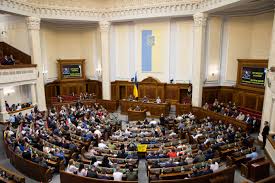
The Verkhovna Rada of Ukraine has adopted as a basis the bill №9083, providing for deregulation and detenization of the market of trade in used vehicles, said the head of the Verkhovna Rada Committee on Finance, Tax and Customs Policy Daniil Hetmantsev.
“Verkhovna Rada adopted as a basis the bill №9083 the initiator of which I am,” he wrote in his Telegram channel on Tuesday.
Getmantsev recalled that the market of used cars before the war was 1.7 million cars per year, in 2023 – 780 thousand.
“This year we expect 1.5 million and only 2.5% of this is sold in white. From the sale of a car in the “white” the state receives an average of 19.8 thousand UAH. From the sale in the “black” – 0″, – he wrote.
At the same time, the head of the parliamentary Committee reminds that for the work of the “white” market there is a hindrance – the requirement of additional registration of the car on the intermediary “with a bunch of unnecessary certificates”.
“The abolition of meaningless state registration of used cars by the trading organization on itself, even if it buys them as goods for resale – will be a pledge for the withdrawal of the market from the shadow, the expansion of the activities of “white” auto traders and the elimination of schemes by which the budget underpays taxes,” – commented the bill Getmantsev.
As reported, the bill № 9063 on the abolition of state registration of used cars on trade organizations that buy them as a commodity for further sale, registered in the Rada on March 6, 2023.
Among its co-authors are Hetmantsev, MPs Yaroslav Zheleznyak (Golos faction), Maryana Bezuglaya, Yevhen Bragar (“Servant of the People”), Dmytro Razumkov (non-faction).
Official car importers and dealers noted that deregulation of the used car trade market will not lead to an increase in prices, as the official market dictates prices and no one will pay more than a car costs.
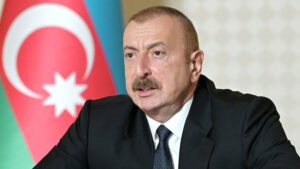
France, India and Greece are openly arming Armenia, and Baku will take serious measures if the situation poses a threat to Azerbaijan, Azerbaijani President Ilham Aliyev has said.
“We cannot just sit and wait. We have clearly communicated our position to the Armenian government and the parties that are trying to take care of Armenia today. If we see a serious threat to ourselves, we will have to take serious measures,” Aliyev said on Tuesday at a meeting in Baku with participants of the international forum “COP29 and Green Vision for Azerbaijan” organized at the ADA University.
The President noted: “France, India and Greece are openly arming Armenia and are trying to prove something to Azerbaijan in this way.
Earlier, the Experts Club think tank created a video analysis of the post-war situation in the Caucasus – https://youtu.be/reyUMjFBFhU?si=qpqLleFVqZJ30GuV
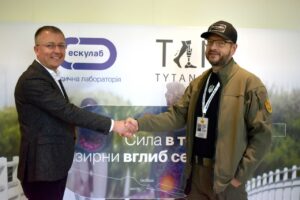
In response to the growing need for comprehensive support for wounded who have been seriously injured in the war zone, a modern rehabilitation hub is being built in Kyiv. This project was implemented thanks to the cooperation of the Center for Saving Lives, the Association of Osteo-Integrative Prosthetics and the Esculab Laboratories network.
“Our center was created to provide our military with the best possible assistance in recovering from severe injuries. We provide not only physical rehabilitation with the help of modern equipment, but also psychological support,” said Vyacheslav Zaporozhets, director of the Center for Saving Lives charitable foundation.
According to him, the project is unique in that it uses not only the most advanced technologies for physical rehabilitation, but also creates conditions for social adaptation and moral recovery of the military.
“We want every wounded soldier who has undergone amputation to be able to return to a full life,” emphasized Mr. Zaporozhets.
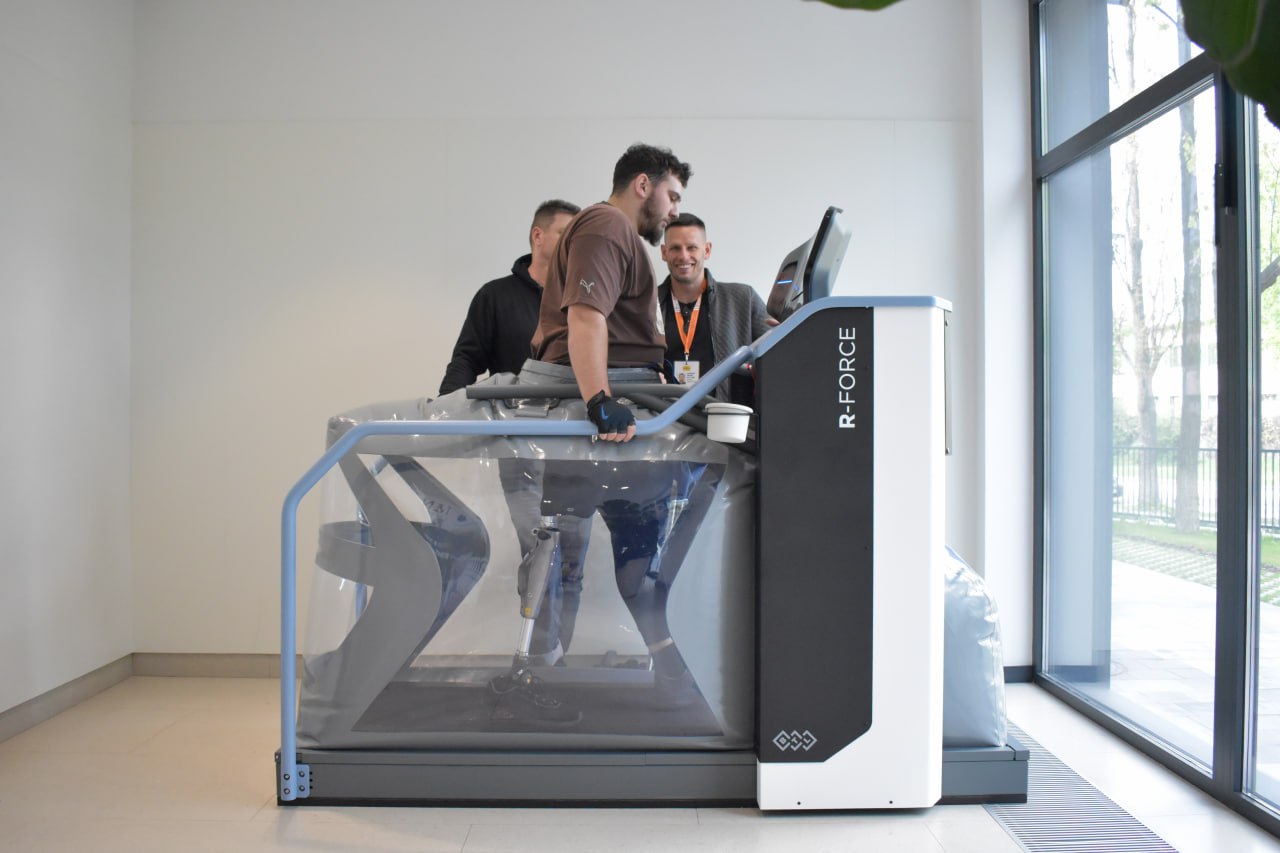
In his turn, co-founder of the Esculab laboratory, Serhiy Dyadyushko, also noted the importance of the work for the veterans’ recovery.
“The network of laboratories “Esculab” is not only about business. We are honored to be a part of this project. Our participation is not limited to financing; we are also actively involved in the process of education and training of specialists, which allows us to maintain a high level of services provided at the center,” he emphasized.
The center will be equipped to the highest standards, including anti-gravity walkways and group exercise spaces that allow patients to feel comfortable and safe during their rehabilitation.
The rehabilitation center is being built on a 500-square-meter area and includes a modern walking laboratory, a wrestling room, a cardio zone, a strength training zone, a dental office, two physiotherapy rooms, a meditation and sleep room, an occupational therapy kitchen, a mini shooting range, locker rooms and showers, etc. The center can accommodate 30 patients at a time.
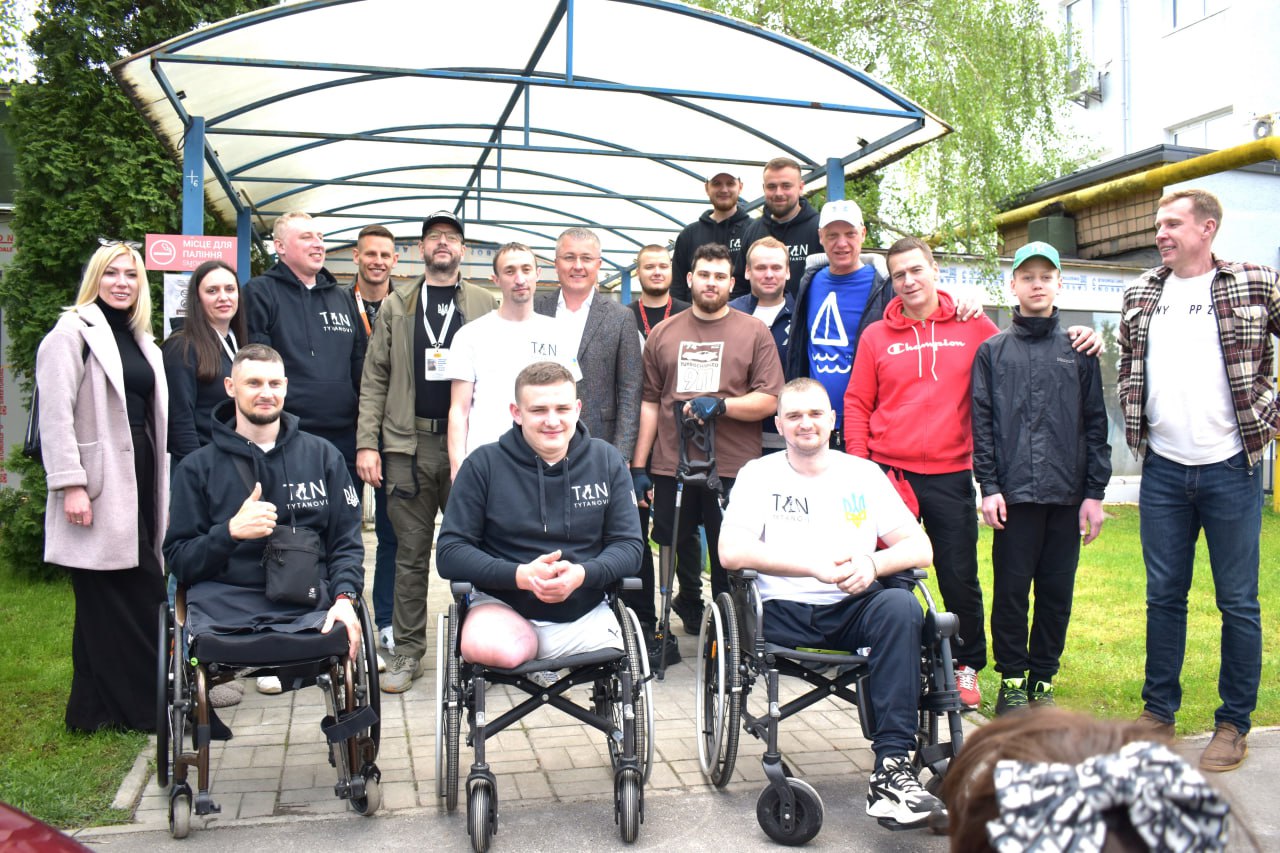
The project is part of a larger initiative aimed at creating a network of similar centers across the country to ensure access to high-quality rehabilitation services for all victims.
“Eskulab is a network of medical laboratories of international quality of diagnostic tests based in Lviv and has one of the largest networks of branches in Ukraine. The network includes more than 100 sampling points in the cities and towns of Lviv, Ivano-Frankivsk, Chernivtsi, Zakarpattia, Khmelnytsky, Ternopil, Rivne, Volyn regions and Kyiv. “Eskulab provides patients with the opportunity to take tests at their place of residence and receive highly accurate results. In February 2020, Esculab Medical Laboratory underwent a voluntary assessment of its measurement capabilities in accordance with the requirements of DSTU ISO 10012:2005 “Measurement management systems. Requirements for measurement processes and measuring equipment” to confirm technical competence and received a Certificate of Conformity of the measurement management system. Today, Esculab performs more than 820 types of laboratory tests.
You can learn more about the initiative to build a rehabilitation hub in the video on the Experts Club YouTube channel here:
Esculab, EXPERTS CLUB, MEDICAL_AID, MEDICINE, REHABILITATION, SERGIY_DYADYUSHKO, TYTANOVI, VYACHESLAV_ZAPOROZHETS

Customs inspectors have prevented an attempt to export 1.5 thousand tons of Ukrainian wheat worth UAH 9.2 million to Italy without a license using falsified documents, the press service of the State Customs Service (SCS) reported on Telegram.
“At the Mukachevo customs post, customs declarations for the export of domestic wheat (not for sowing) were submitted for customs clearance. The total weight of the goods was indicated as more than 1.5 thousand tons worth UAH 9.2 million. The seller of the goods was a Kharkiv-based company,” the statement said.
According to the State Customs Service, customs officers noticed that the goods were not licensed for export. During the inspection, it turned out that the director of the Kharkiv company resorted to tricks to circumvent the licensing of agricultural exports, and in the shipping documents he indicated an Italian company as the recipient of the goods. The export of wheat to Italy, unlike other EU countries, is not subject to licensing.
The foreign company responded to the State Customs Service’s request and denied the information about the purchase of Ukrainian wheat in a letter. For its part, the Italian customs also officially confirmed that there are no declarations in their database related to the Italian company that bought the goods.
“Two reports on violation of customs regulations under Part 1 of Article 483 of the Customs Code of Ukraine were drawn up against the head of the Kharkiv company for submitting documents containing false information about the recipient of the goods. The sanction of the article provides not only for the imposition of a fine in the amount of 50 to 100% of the value of the offense items, but also for their possible confiscation,” the State Customs Service emphasized.

Detectives of the Bureau of Economic Security (BES) are investigating the fact of tax evasion of more than UAH 1 billion by a well-known organizer of online gambling, the bureau said in a statement on Tuesday.
“The investigation has established that the company paid out UAH 4.5 billion in winnings to players, of which it failed to pay personal income tax and military duty totaling UAH 1.1 billion. These payments were recorded not as winnings, but as refunds, i.e. deposits, to individuals that were allegedly not used in gambling,” law enforcement officials say.
The BES does not disclose the name of the gambling organizer, but according to Interfax-Ukraine, it is the Cosmolot online casino, whose co-owner Arnulf Damerau recently told the Financial Times that allegedly corrupt officials in Ukraine’s law enforcement agencies and the presidential administration are trying to extort tens of millions of euros from him.
The BES adds that more than 5 million banking transactions are being analyzed, and the amount of damage caused to the state is confirmed, among other things, by the materials of the documentary audit of the State Tax Service.
“To ensure a comprehensive and complete investigation, detectives have already questioned the company’s employees, players and counterparties, conducted searches, sent numerous requests to banking and other institutions, and received a number of rulings on temporary access to things and documents,” the statement said.
According to the statement, as part of the criminal proceedings, the bank accounts of the company, which is still operating today, were seized, but the court ruling allowed it to make all necessary payments to the budget and pay wages.
“At the same time, at the time of the announcement of one of the rulings, the company’s officials transferred 100 million to the accounts of a counterparty, and these funds were subsequently arrested,” the release said.
The BES also states that the company’s officials have been obstructing the detectives in every possible way during the investigation, in particular, they have ignored the investigating judge’s decision to grant temporary access to documents, refused to provide information during interrogations, and concealed primary business documents.
“The pre-trial investigation is currently ongoing. The BES detectives continue to collect evidence that will be used both for forensic economic examination to confirm the amount of damage caused to the budget of Ukraine and to prove illegal activities,” the law enforcement officers said in a statement.

Ferrexpo plc, a mining company with major assets in Ukraine, produced 3.814 million tonnes of pellets in January-March this year, up twice year-on-year (0.901 million tonnes) and 2.9 times more than in the previous quarter (0.627 million tonnes).
“Our operations delivered exceptional results in the first quarter, with total production up 203% quarter-on-quarter to over two million tonnes of iron ore pellets and concentrate. This is our best quarterly result since the full-scale invasion of Ukraine,” Executive Chairman Lucio Genovese said in a release on Tuesday.
It is specified that the total production of commercial products (pellets and iron ore concentrate) in the first quarter of this year amounted to 2.054 million tons, which is 2.1 times higher than in the first quarter of 2023 and 3 times higher than in the previous quarter. In particular, the production of saleable concentrate in January-March 2024 amounted to 241 thousand tons, compared to 53 thousand tons in January-March 2023 and 50 thousand tons in October-December 2023.
Genovese noted that Ferrexpo was able to export products from Ukrainian ports again during the quarter, which allowed it to supply larger volumes to Europe and resume sales to customers in the Middle East and North Africa and Asia.
According to him, the company is currently seeing an increase in the conscription of its employees: 669 Ferrexpo employees are serving in the army, which is the highest figure since the start of the full-scale invasion, while 67 employees have returned and a veterans’ reintegration program is underway.
“While we consider the level of risk acceptable given the ongoing war in Ukraine, we will continue to utilize all available export capacity to ensure that the interests of all stakeholders are supported,” Genovese concluded.
The Group also successfully operated two and sometimes three pelletizing lines (out of four) during the quarter, changing product quality depending on customer demand and expanding logistics capabilities.
Total sales for the quarter amounted to 1.992 million tons, producing only pellets with an iron content of 65%.
As reported, Ferrexpo produced 3.845 million tons of pellets in 2023, down 36.5% from 2022.
Ferrexpo owns a 100% stake in Yeristovo Mining, 99.9% in Bilanivsky GOK and 100% in Poltava Mining.
The company ended 2023 with a net loss of $84.8 million compared to a net profit of $220.0 million in 2022. Revenue for 2023 fell by 47.8% to $651.8 million, and EBITDA by 83% to $130.2 million.